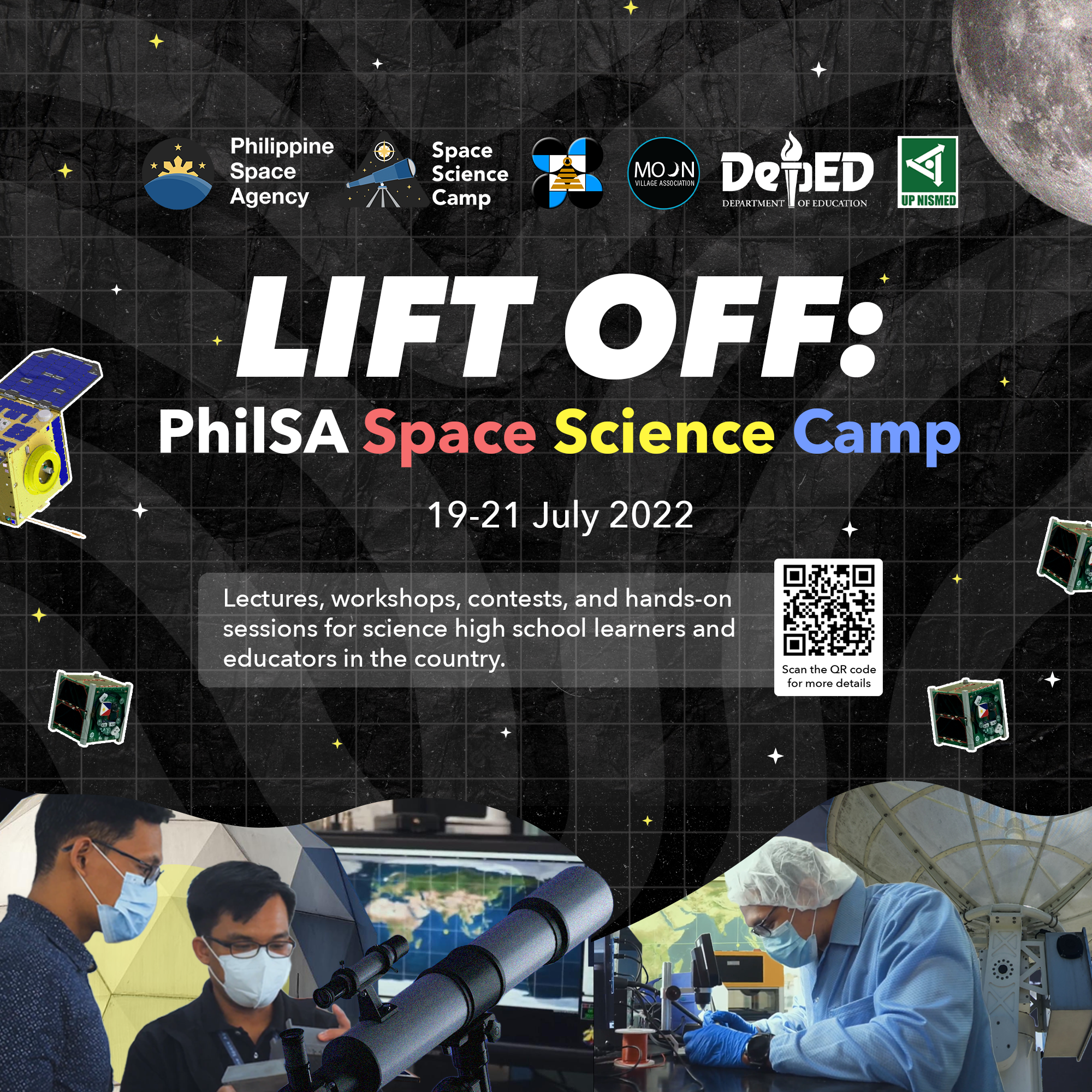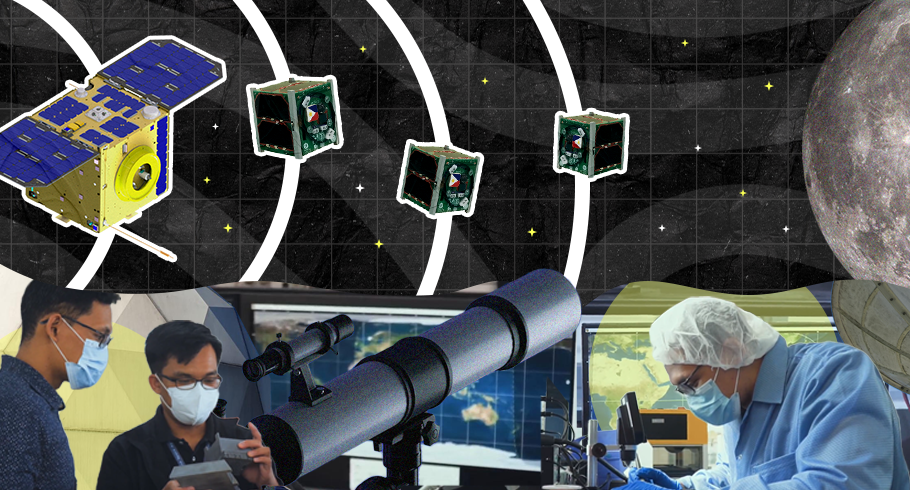In line with its mandate to develop space education programs and promote public awareness, the Philippine Space Agency is set to hold its first science camp, “LIFT OFF: PhilSA Space Science Camp’” from 19 to 21 July 2022 in a hybrid format. PhilSA, in partnership with the Department of Education (DepEd), Department of Science and Technology – Science Education Institute (DOST-SEI), Moon Village Association (MVA), and the University of the Philippines National Institute for Science and Mathematics Education Development (UP NISMED), has prepared lectures on space science and technology applications (SSTA), workshops on space mission planning and space science communication, a space science contest, and moon viewing lecture and activity for the participants. Incoming senior high school learners, campus journalists, and educators from science high schools from the 16 division schools of Metro Manila were invited to the three-day camp.
PhilSA and its partners will virtually welcome the participants on Day 1 with a camp overview, a talk on SSTA career opportunities, activities to highlight the relevance of space to everyday life, and an introduction to space missions and satellite payloads. “The camp is one of PhilSA’s initiatives that aim to introduce the exciting world of space science and technology to the Filipino youth. We strongly believe that there’s a good future for Philippine SSTA if we start introducing these concepts early,” LIFT OFF Project Lead and PhilSA Earth Sciences Mission Studies Division Supervising Science Research Specialist Dr. James Cesar Refran said.
A face-to-face session on Day 2 at the University Hotel, UP Diliman, Quezon City, will feature the first part of the Space Data Dashboard workshop for campus science writers that will highlight the importance of communicating space science to the public. “In October last year, during World Space Week, we held the first Space Data Dashboard Media Workshop for journalists, with the intent of enabling reporters, news producers, and writers to tell more meaningful stories about our environment using available space data tools. This time, we are expanding this opportunity to campus journalists and writers. We want to start them young in order to ensure the future of space science communication in the country,” LIFT OFF co-lead and PhilSA Public Relations and Information Division Chief Tricia Zafra said.
Also happening on Day 2 is a learning session for STEM teachers, which aims to strengthen competencies in teaching SSTA using web-based resources and space science and technology equipment, such as telescopes, to more effectively engage students in SSTA topics. In the afternoon, students will have the opportunity to demonstrate their knowledge of space science and technology in the quiz bee. The whole day event will conclude with the commemoration of International Moon Day through a moon viewing session facilitated by the Moon Village Association.
To ensure the safety of the conduct of the in-person activities, PhilSA has complied with the latest requirements set by the Inter-Agency Task Force for the Management of Emerging Infectious Diseases (IATF) Guidelines. Health measures will be observed on site, and all participants, resource persons, and guests will be provided with sanitation kits.
Using what they learned from Day 1 and Day 2, participants will present their proposals for space science stories and future space mission plans on the virtual session on Day 3. A panel of resource persons from PhilSA and partner agencies will help the participants refine and develop their ideas.
“We are all excited to meet our Space Science Camp participants. This year’s theme, ‘Lift Off’ symbolizes our efforts to venture and explore places we’ve never been to–all driven by our curiosity to understand what’s out there. We hope to instill that curiosity,” Refran said.
In the coming years, PhilSA aims to bring the space science camp to other regions of the country.





